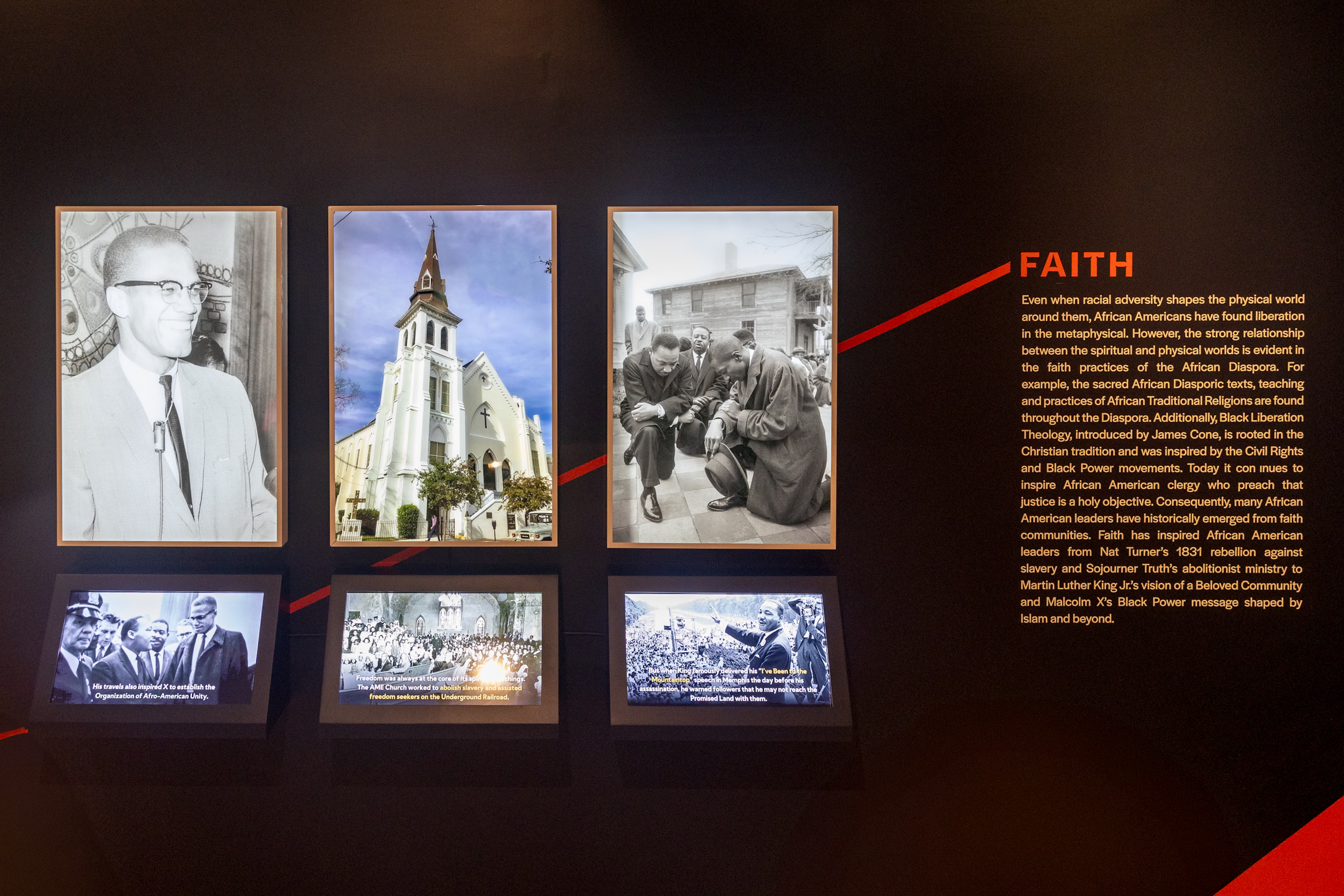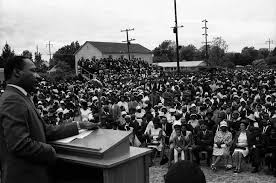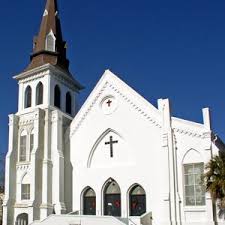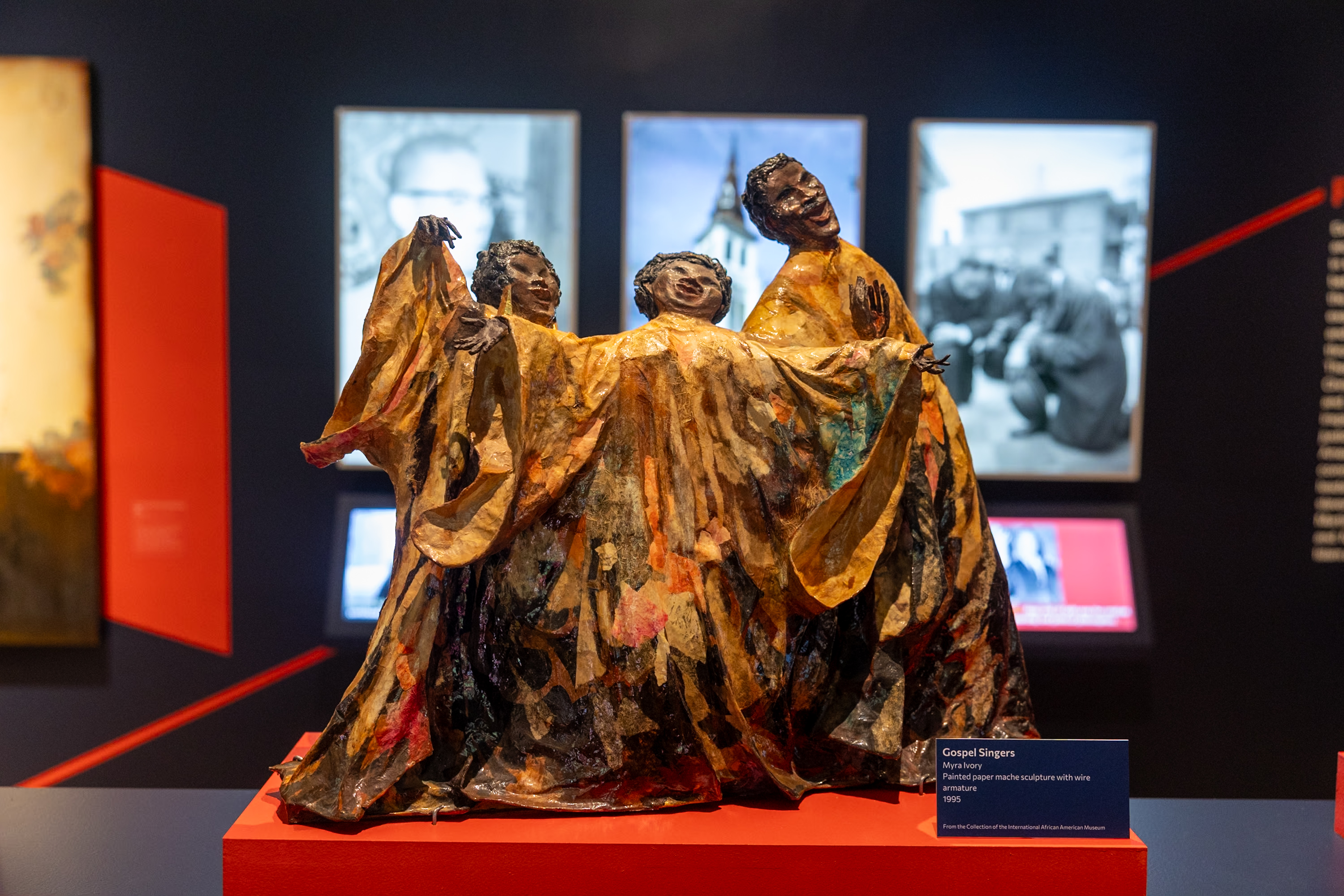Faith

"IAAM Collection, Thomas Photographer 2024"
Diasporic sacred texts, teachings, and practices. Some examples include Traditional African Religions (TAR) throughout the Diaspora. TARs show that Black people create religious community and identity through relationships with deities and ancestors and cultural retention and exchange. Biblical stories of exile, exodus, and spreading the Gospel are central to Christian doctrine and instructive for Christian life. The Hijrah (622 C.E), the Prophet Muhammed’s migration from Mecca to Medina to escape persecution, is a foundational event in the spread of Islam. In all these religions and others, faith continues to be shaped by mobility. Believers pilgrimage to holy lands to be closer to the divine, migrate to more freely practice their faith, and engage in other practices to nourish their faith.
Dr. Martin Luther King Jr. (1919-1968)
Rev. Dr. Martin Luther King Jr.’s deep well of faith was the catalyst behind his civil rights leadership and political philosophies. Rooted in Christian principles, King preached a message of freedom, love, nonviolence, and justice, drawing upon his spiritual beliefs to shape his moral and ethical worldview. King staunchly advocated for nonviolent resistance, embodying ideals of loving thy neighbor and turning the other cheek. As a minister, King was foremost a shepherd for his community providing spiritual guidance. But when King famously delivered his “I’ve Been to the Mountaintop” speech in Memphis the day before his assassination, he warned followers that he may not reach the Promised Land with them. Yet he encouraged them to have faith that a freer world was attainable. King envisioned a society based on the principles of love, equality, and solidarity which he called the "Beloved Community." King left an enduring legacy of faith-driven leadership and social change.

"MLK March On Ballot Boxes, 1966"
Malcom X (1925-1965)

Malcolm X "Library Of Congress, 1964"
Malcolm X’s conversion to Islam marked a spiritual awakening that continued to shape his leadership in Black struggles for liberation. X developed a new identity and new purpose by embracing the Nation of Islam, which instilled racial pride, self-reliance, and direct opposition to white supremacy in Black Muslims. Travel greatly influenced Malcolm X’s spiritual evolution. In 1964, he visited Africa and the Middle East and completed the Hajj, the pilgrimage to Mecca required of Muslims. The trip was so transformative that X changed his name to El-Hajj Malik El-Shabazz. After witnessing how Islam united Muslims of different races and nationalities, he distanced himself from the Nation of Islam and embraced Sunni Islam.

AME Church "SC Greenbook", 2022
AME Church
The African Methodist Episcopal (AME) Church was the first African American denomination organized in the United States. Formerly established in 1816 in Philadelphia, its founders withdrew from a white congregation that confined Black worshipers to the church’s gallery. Richard Allen, William Paul Quinn, Daniel A. Payne, and Henry M. Turner were early leaders in the Bethel African Methodist Church. Before the American Civil War, the AME Church was mostly limited to the free states in the North and Midwest. But in 1818, a group of free and enslaved African Americans led by Morris Brown had similarly withdrawn from Charleston’s Methodist Episcopal Church to form Emanuel African Methodist Episcopal Church. Known as Mother Emmanuel, it remains the oldest AME Church in the South.

"Thomas photographer, IAAM Collection, 2024"
